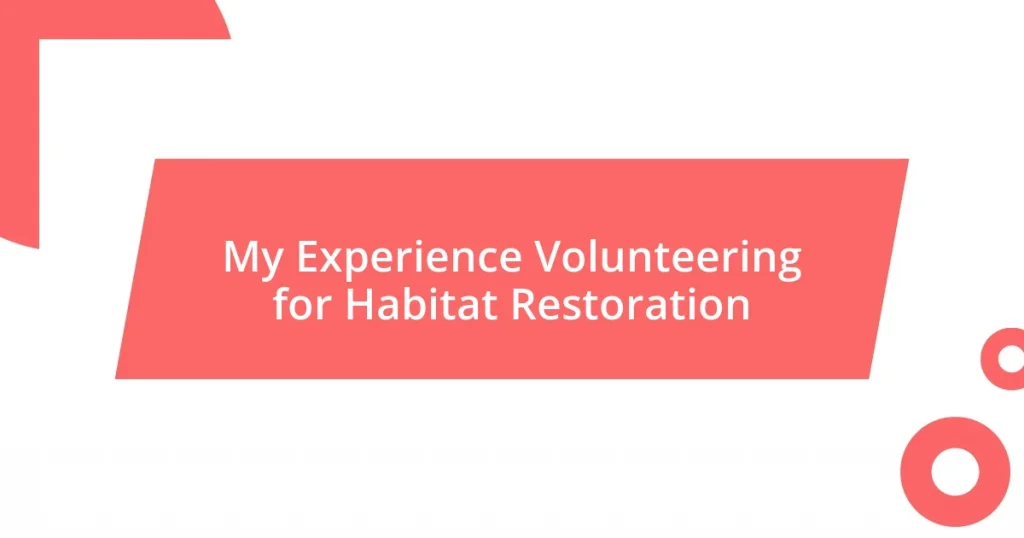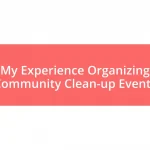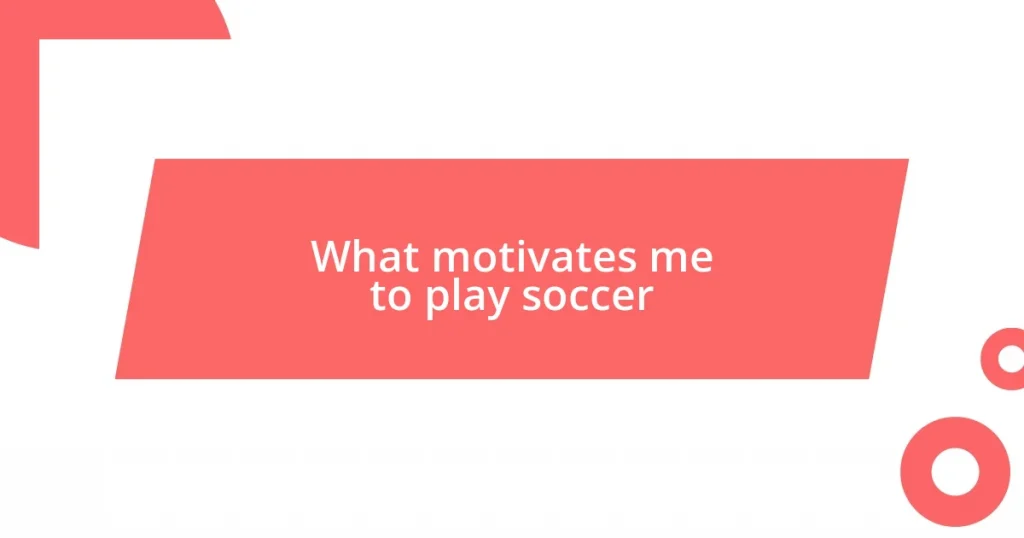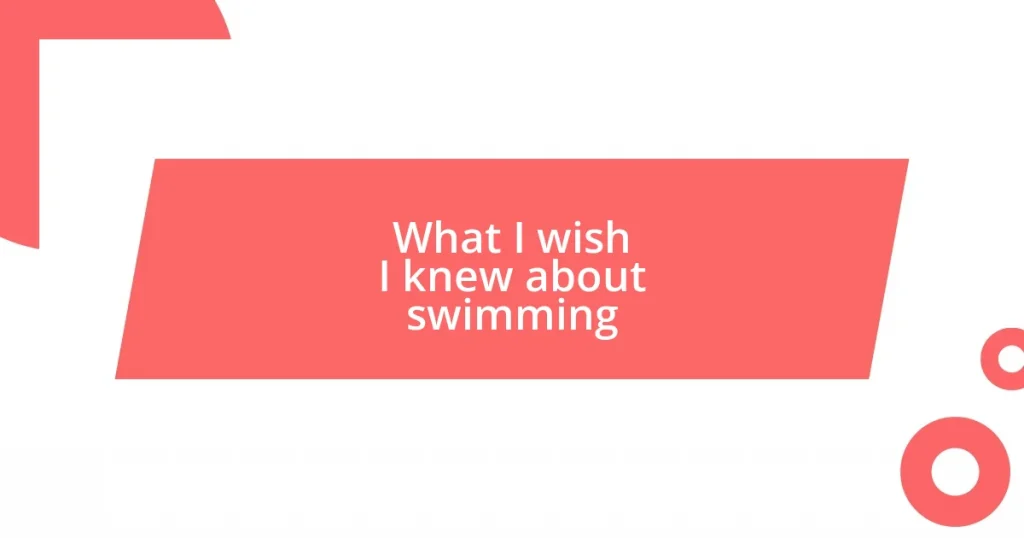Key takeaways:
- Habitat restoration fosters a deep connection between volunteers and the ecosystem, highlighting the interdependence of human well-being and environmental health.
- Volunteering develops essential skills such as leadership, problem-solving, and resilience, while fostering teamwork and adaptability in challenging situations.
- Community involvement in habitat restoration initiatives strengthens social ties, empowers marginalized groups, and cultivates lasting relationships among diverse participants.
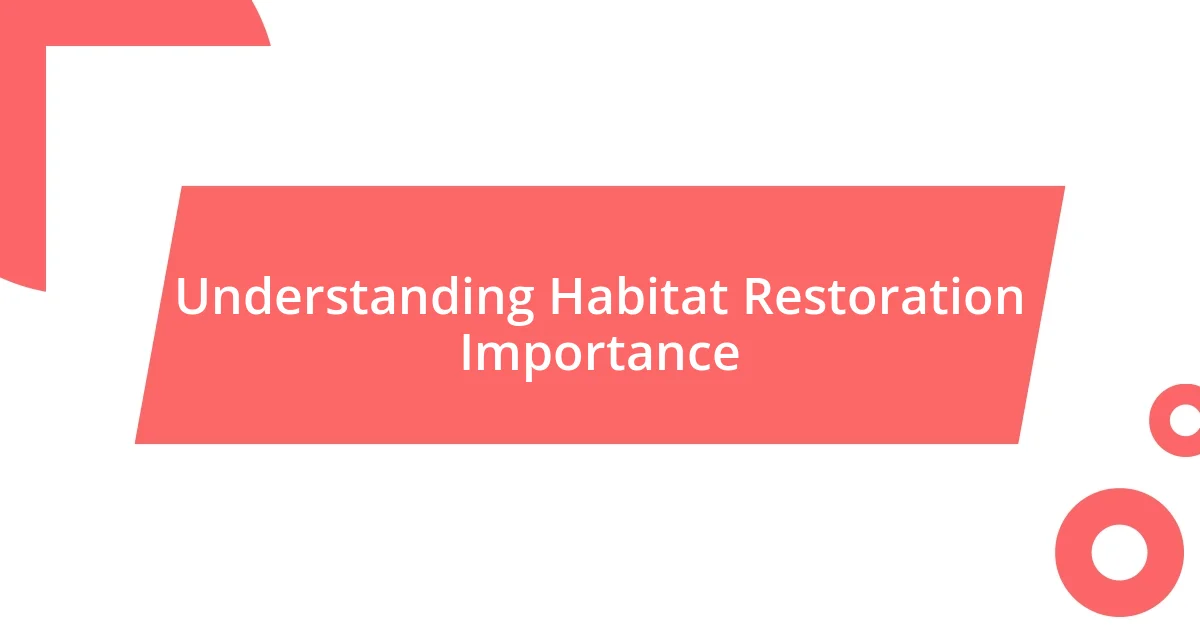
Understanding Habitat Restoration Importance
Understanding the importance of habitat restoration really struck me during my first volunteer day. As we worked to clear invasive species from a local wetland, I couldn’t help but feel a profound connection to the ecosystem we were trying to revitalize. Isn’t it remarkable how every tiny action we take can ripple through nature, benefiting countless species?
As I watched the native plants begin to flourish in areas we’d just cleared, I felt a rush of hope. Restoring habitats not only supports wildlife but also enriches our own lives. Have you ever considered how our well-being is intertwined with the health of our environment? For me, realizing this connection deepened my commitment to volunteer work.
Moreover, habitat restoration plays a vital role in combating climate change. I remember feeling a sense of urgency when our group learned about the carbon sequestration potential of restored forests. Isn’t it empowering to know that our efforts can help mitigate global warming? Each restored habitat represents a step towards a more sustainable future, and that perspective truly inspires me to keep pushing for change.
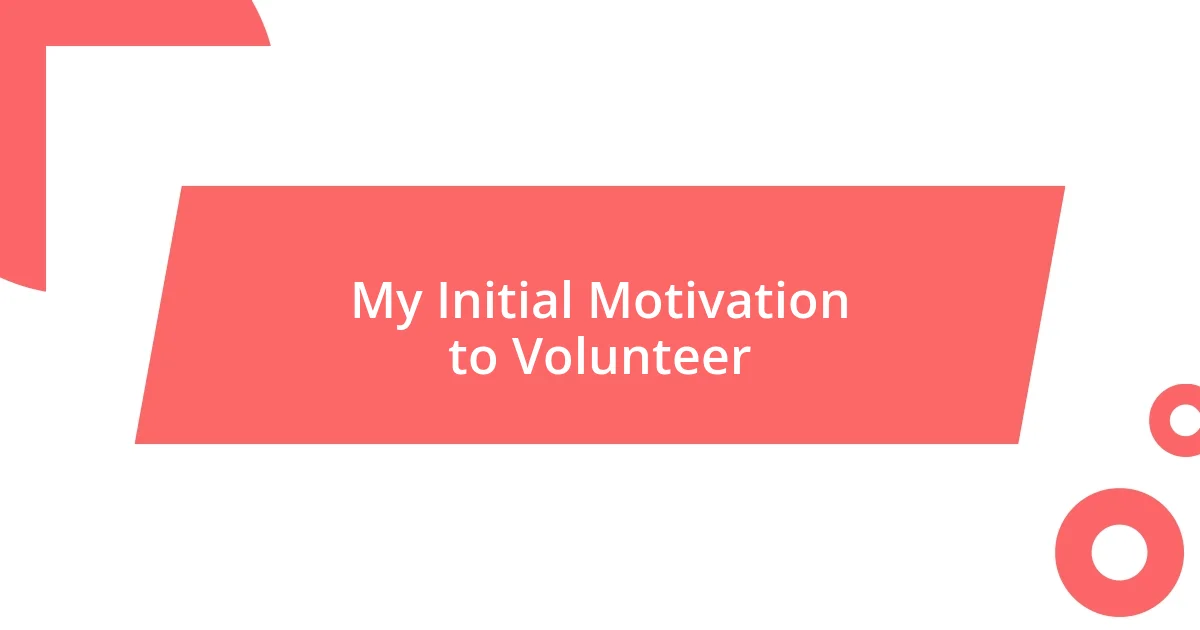
My Initial Motivation to Volunteer
Volunteering for habitat restoration wasn’t just a spontaneous decision for me; it stemmed from a deep-seated desire to make a tangible impact. I remember sitting in my living room, scrolling through social media, when I stumbled upon a post about a local restoration project. It struck me how a few hours of my time could directly contribute to an environment in need. That sense of possibility resonated with my own experiences in nature. I had spent countless weekends hiking through our local parks, and I wanted to give back to those spaces that had brought me so much joy.
Here are a few specific motivations that encouraged me to take the plunge into volunteering:
- A strong connection to nature since childhood, where every hike felt like a new adventure.
- The realization that just showing up could help revive a piece of our planet.
- A desire to meet like-minded individuals who shared a passion for environmental conservation.
- The hope of creating lasting positive change for future generations.
- The thrill of actively participating in hands-on work that would lead to visible results in my community.
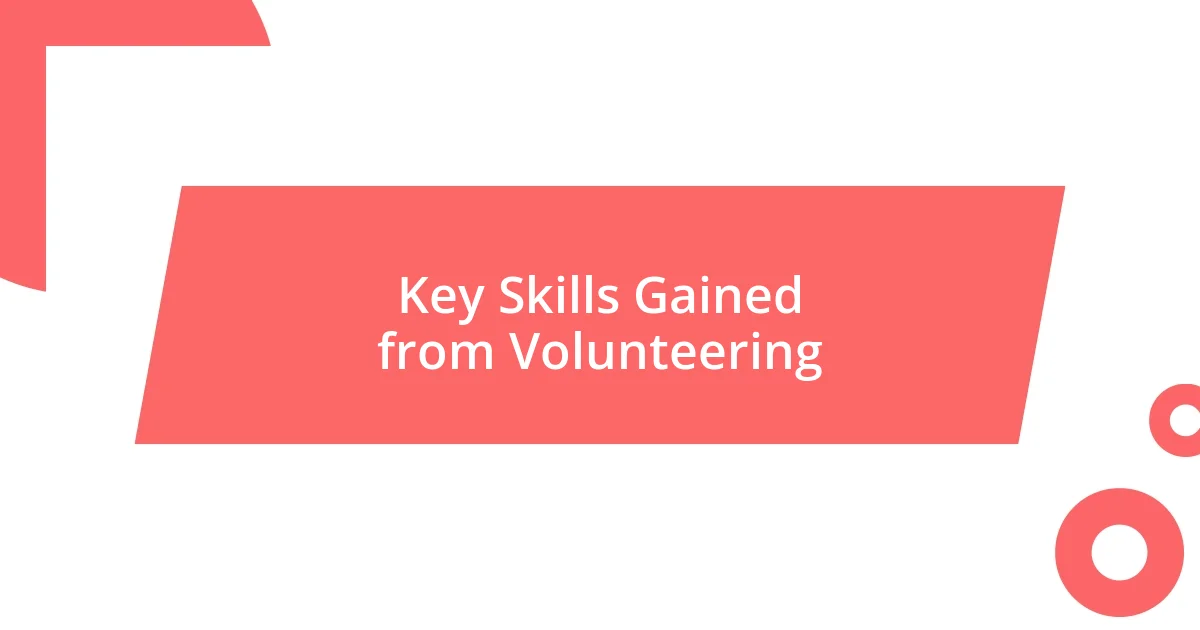
Key Skills Gained from Volunteering
Volunteering for habitat restoration opened my eyes to various skills that I had no idea I could acquire. For instance, while collaborating with team members to coordinate activities, I honed my leadership and communication skills. It’s fascinating how conveying thoughts and ideas clearly can significantly enhance the overall effectiveness of group projects. Have you ever found that working closely with others has helped you grow in ways you didn’t expect?
Additionally, I gained practical problem-solving skills as I navigated challenges on-site. One day, while facing an unexpected weather change, our group quickly adapted our plans to continue the restoration work. I felt a sense of responsibility not just for the task at hand but also for motivating my team in that stressful moment. It reminded me how essential adaptability is in life, especially when working towards a common goal. Can you identify moments in your life where adaptability led to success?
With every task, I realized that my physical endurance improved, too. Moving heavy materials and spending hours outdoors taught me the importance of resilience. The way I felt at the end of a long day—exhausted yet fulfilled—was truly rewarding. Who would’ve thought that tackling the physical challenges of restoration could translate into such a sense of accomplishment?
| Skill Gained | Description |
|---|---|
| Leadership | Improved ability to guide and motivate team members in tasks. |
| Communication | Enhanced clarity in expressing ideas and collaborating effectively. |
| Problem-solving | Developed quick thinking to adapt to unexpected challenges. |
| Resilience | Increased physical endurance and mental fortitude through hands-on work. |
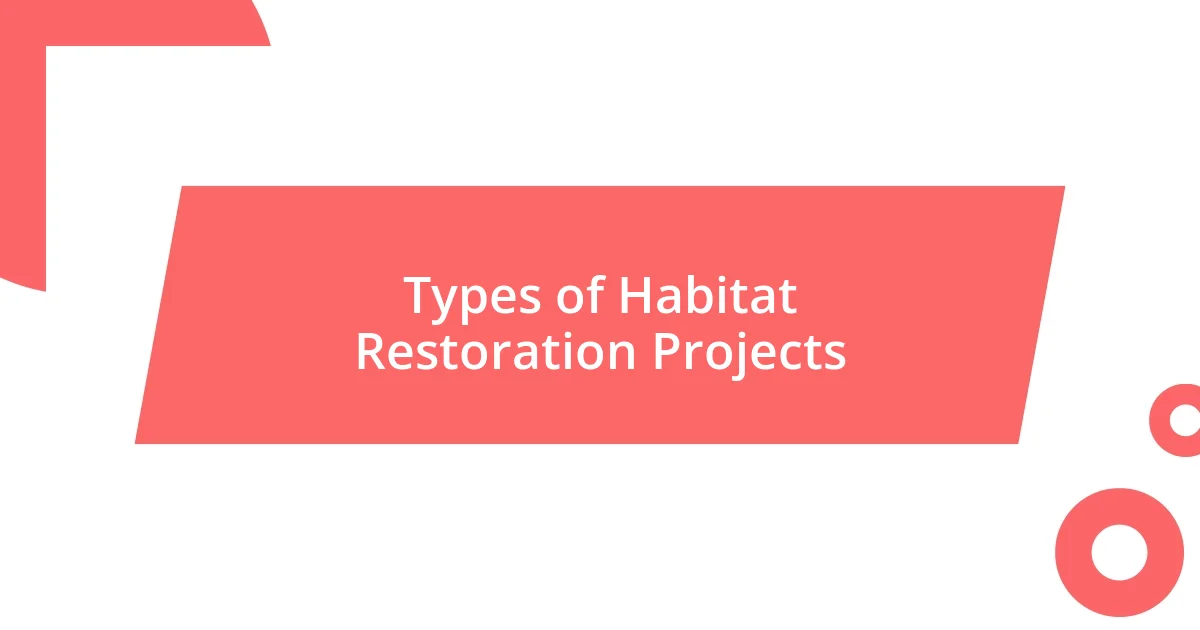
Types of Habitat Restoration Projects
When it comes to habitat restoration projects, there’s a wide array of types that cater to different needs. For example, I participated in a wetland restoration project that was all about revitalizing a marsh area that had been drained for agriculture. I remember standing in the mud, planting native species, and feeling a profound connection to the ecosystem we were helping. Such projects often focus on restoring hydrology and improving wildlife habitats, which made me appreciate the delicate balance of nature.
Then there are terrestrial restoration efforts, like the one I joined in a local forest. We cleared invasive species that were choking the life out of native plants. As I tugged at those stubborn weeds, I couldn’t help but ponder—how often do we overlook the things in our lives that overshadow our true potential? It was empowering to see how removing one obstacle could lead to rejuvenation. This kind of hands-on work is instrumental in supporting biodiversity and often involves replanting more resilient native varieties.
Additionally, urban habitat restoration is a growing area that I found particularly intriguing. In one instance, I helped convert a vacant lot into a community garden. It was incredible to witness the transformation, sparking conversations about the importance of green spaces in urban settings. Have you ever thought about how a simple plot of land can become a vibrant community hub? This type of project not only fosters wildlife but also enriches social ties among neighbors, demonstrating the far-reaching impact of habitat restoration.
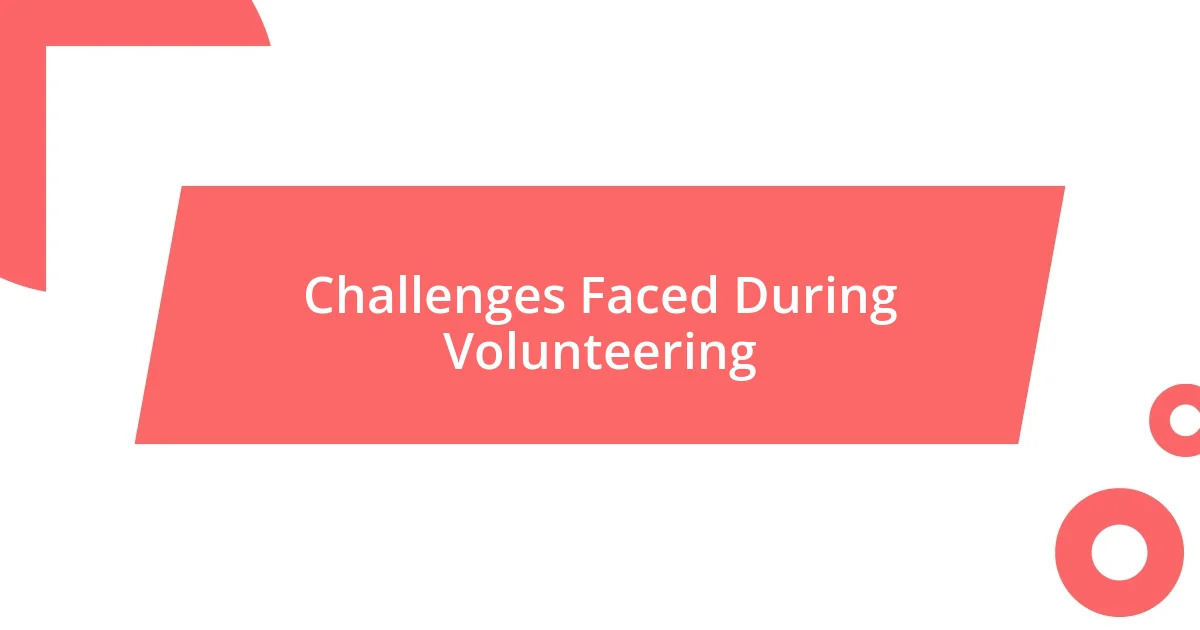
Challenges Faced During Volunteering
I remember stepping onto the restoration site for the first time, excitement buzzing in the air. However, as the day progressed, I quickly realized that the physical demands were intense. It wasn’t just the heavy lifting that caught me off guard; it was the intricate details of working in unpredictable environments. Have you ever faced a challenge that pushed your limits in ways you didn’t expect? That day, I learned the importance of pacing myself and recognizing my boundaries, which can sometimes feel like a defeat but is crucial for sustainability.
One of the toughest moments came when our group encountered a swarm of mosquitoes, driving us to distraction. After some initial laughter and annoyance, it became evident that we had to adjust our approach. I vividly can recall huddling with fellow volunteers, brainstorming alternative methods that wouldn’t compromise our goal but kept our spirits high. It was a powerful reminder of how teamwork can carry us through discomfort—create a bond amid the most annoying adversaries. Has there been a time when a small setback turned into a valuable lesson for you?
A sense of urgency loomed over us as deadlines approached. I often felt an internal tug-of-war between wanting to make a significant impact and managing my expectations. One particularly challenging week, I found myself frustrated after realizing we wouldn’t meet our goal by the planned date. But instead of succumbing to disappointment, I embraced those emotions, reflecting on how every effort counts, even when progress isn’t linear. This experience taught me to appreciate the journey, no matter the outcome—how do you define success in your volunteer experiences?
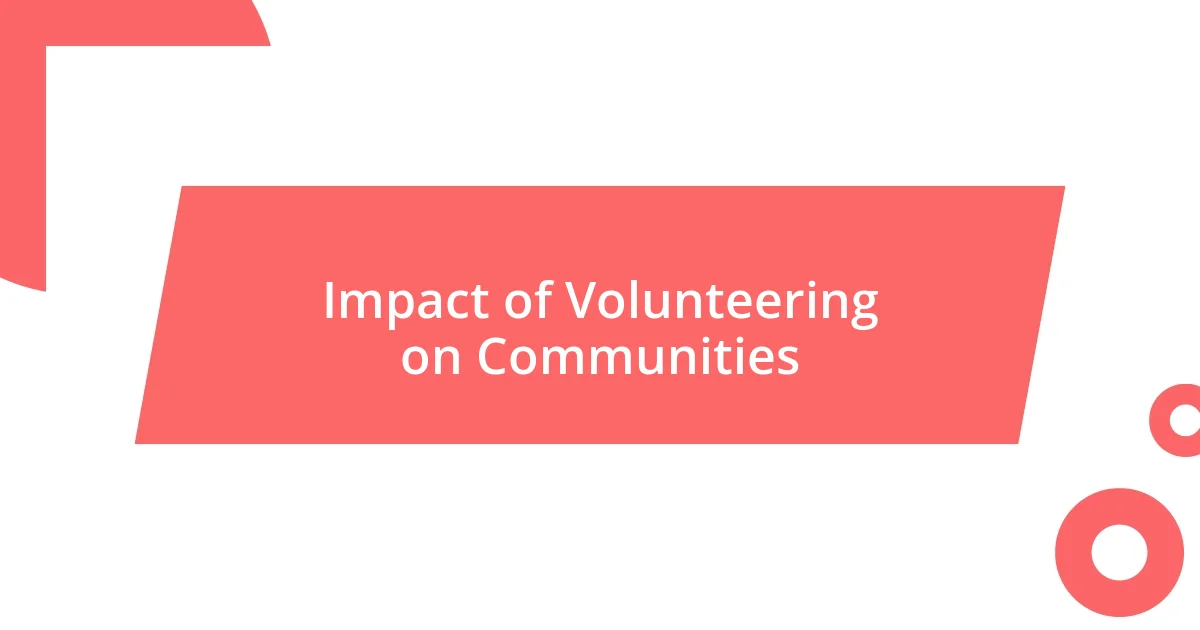
Impact of Volunteering on Communities
Volunteering in habitat restoration truly transforms communities in profound ways. I recall when we organized a tree-planting event in a neighborhood park that had been neglected for years. Seeing families come together, kids excitedly planting saplings, and neighbors chatting while working side by side was heartwarming. It made me realize how collective effort can revitalize not just the physical space but also the community spirit.
Moreover, I noticed how these volunteer initiatives often empower marginalized groups. During one project, a local youth group led the charge in creating a community garden, reclaiming an abandoned plot of land. It was inspiring to watch their confidence grow as they took ownership of the project, transforming their environment and themselves in the process. Have you ever seen a community flourish in unexpected ways through volunteering? Those young people demonstrated that when individuals come together for a shared goal, the ripple effects can be truly remarkable.
Beyond the immediate ecological benefits, volunteering fosters lasting relationships and networks among community members. I remember a moment during a cleanup event when a retired teacher shared her passion for environmental education with the younger volunteers. It was fascinating to witness this exchange, highlighting the cross-generational connections that emerge in these projects. These bonds often turn into a support system that extends beyond the physical work, creating a culture of collaboration and care. Isn’t it amazing how a shared mission can unite diverse people and nurture a community’s resilience?
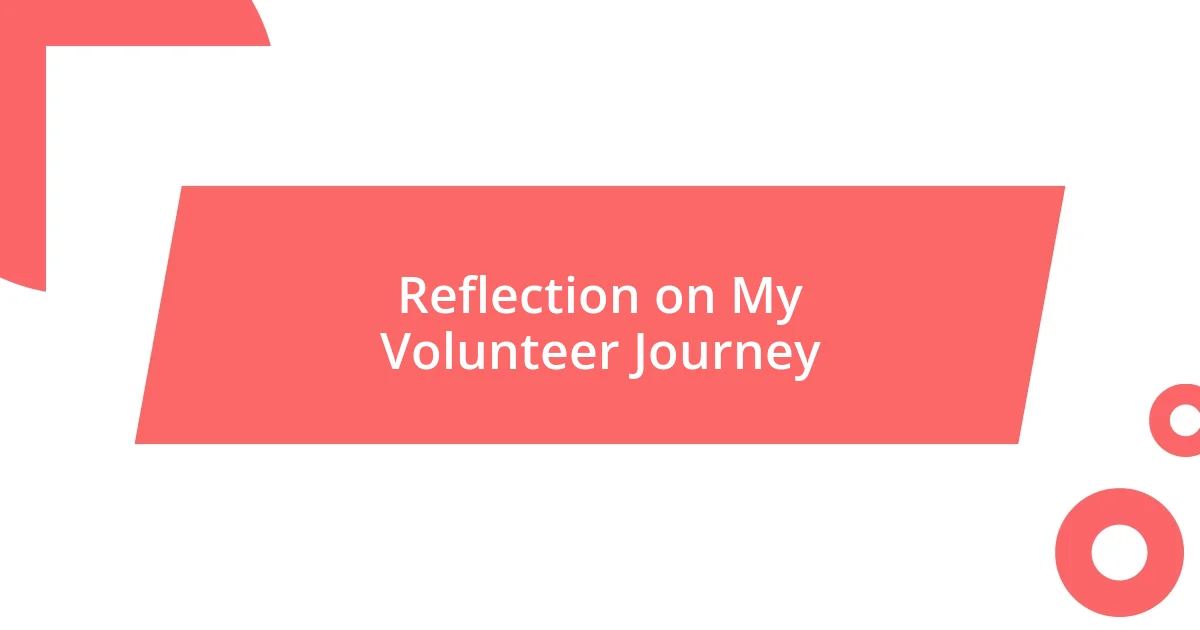
Reflection on My Volunteer Journey
Reflecting on my volunteer journey, I can’t help but appreciate the unexpected friendships that blossomed along the way. One afternoon, while we were clearing invasive plants, I found myself in deep conversation with a retiree who shared his lifelong passion for nature conservation. Have you ever met someone who changed your perspective? His stories opened my eyes to the long-term impact of our work, reminding me that while we labor in the present, we’re often part of a much bigger narrative.
Another revelation struck me when I discovered how the project aligned with my personal values. During a particularly grueling day, I felt an overwhelming urge to step back and reconsider why I had volunteered in the first place. The answer was surprisingly simple yet profound: I wanted to make a difference, however small, in the world around me. In that moment of reflection, I realized that the act of volunteering itself is an expression of hope. Do you sometimes feel uplifted just by the act of giving your time and energy?
As my experience progressed, I learned to savor the small victories. One day, after weeks of effort, we successfully completed a section of the habitat restoration. The sense of accomplishment was palpable, and I found myself celebrating not just the outcome but the journey that led us there. Each challenge we overcame brought us closer together, forging bonds that would last far beyond that project. Isn’t it fascinating how growth comes not only from success but from the myriad of experiences we share along the way?










